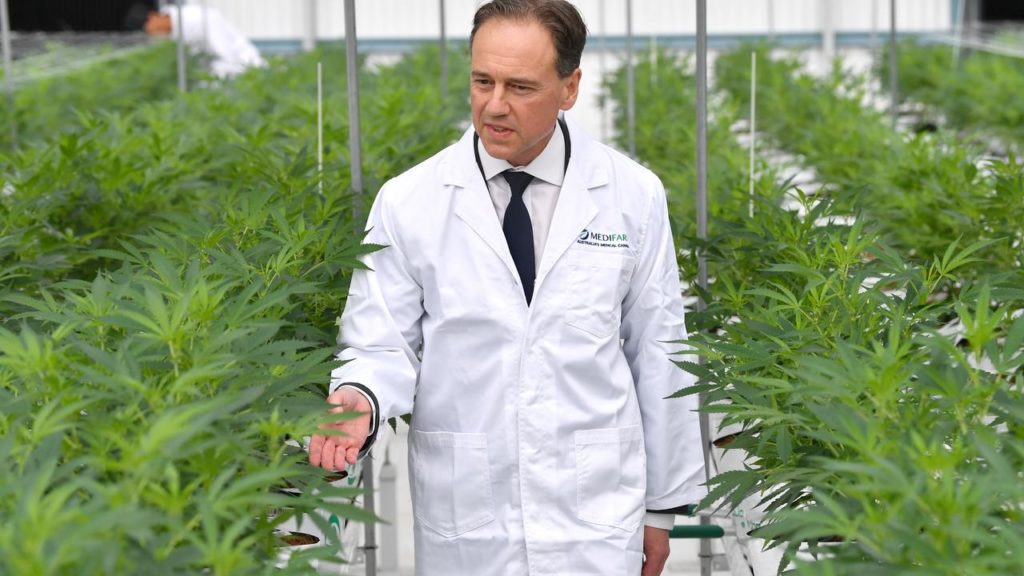Montu has set up a telehealth sector working group chaired by former federal health minister Greg Hunt “to help shape shared principles for high-quality virtual care in Australia”.
The group, which held its inaugural meeting last month, will develop governance standards and a 10-year roadmap “that can underpin a safe, inclusive, and sustainable virtual care system”, Montu said.
The growth of telehealth has been broadly welcomed in recent years, given its ability to make healthcare more accessible. But the model has faced criticism from some quarters, with health bodies concerned about the rise of what they dubbed “tick and flick” online prescribing.

It attracted the attention of the Medical Board of Australia (MBA) in 2023, which issued draft guidelines and warned against the practice for first-time patients.
Recommendations were also drawn up by the Australian Medicinal Cannabis Association and Cannabis Clinicians Australia which released a draft code of conduct in the same year.
Montu head of government relations Edward Strong said the new group would “build upon” the work of the MBA.
“What the medical board has done is a good first go. It helps, but we think there is more that can be done, to build upon that work,” he said.
“It would be inappropriate to pre-empt the group’s work. We are part of the group, and facilitating its coming together, but it is a collective piece and we will work together as a sector.”
Founding members of the group include Rare Cancers Australia, Members Health Fund Alliance, the Medical Technology Association of Australia, mental health specialist We Lysn, telehealth platform Each, workplace health provider CU Health and regional and remote area platform, Marathon Health. Alcohol and drug policy expert Chris Raine has also joined the group.
Strong said: “Telehealth is no longer a stopgap solution. It’s central to how care is delivered across Australia.

“The challenge is not whether it continues, but how we define its quality. That starts with setting shared expectations across the sector.”
He added: “The goal here is not more red tape, it’s clarity. When patients log on for a telehealth appointment, they should have the same confidence in the care they’re receiving as they would in any consulting room.
“Now, we must match that access with quality, ensuring digital care is not just available, but exceptional.”
Montu’s telehealth business, Alternaleaf, has itself been the subject of criticism from some elements of the medicinal cannabis industry.
Strong declined to comment on its own operation, although a spokeswoman said almost 250,000 patients have sought help through its clinics.
“By that very definition, we are a leader in this sector and so we share in that responsibility to improve it for the future,” she said.
Hunt said the initiative was a “vital next step” in telehealth’s evolution following the Covid lockdowns.
“During the pandemic, Australia rapidly expanded access to telehealth, helping millions of people receive care when they needed it most,” he said.
“This group’s purpose is to ensure telehealth continues to evolve with credibility, clinical integrity and public confidence at its core.”
Strong said the working group will look to produce two documents in the first phase of its work; a set of principles that telehealth providers should adhere to, and a 10-year roadmap of “what telehealth looks like in Australia and how the best care can be provided now, and into the future”.
“One of the amazing aspects of this group is how collaborative the organisations have been in bringing ideas together,” he said. “In the initial stages this was about industry coming together to look at what [it] can do. But further down the track it will be critical to engage more broadly with doctor groups, regulators and the government.”
Montu said the working group will meet again “mid-year” and throughout 2025, with outcomes to be shared publicly following a national engagement process.
The group acknowledged the support and guidance of federal health minister Mark Butler and shadow health minister Anne Ruston, “noting their shared commitment to ensuring telehealth remains a permanent and trusted feature of the Australian health system”.


Incredibly frustrating and transparently self-serving to see these players creating their own rules to follow in order to feel compliant or professional. Many groups (including the Medical Board of Australia, no less) have already created guidelines and standards for telehealth consultations.
Calling the clinic that proclaims to be a “leader in this sector”, I have repeatedly been unable to speak with a clinical staff member directly for a case discussion, and told that I must email the team and wait for a response. That’s not exceptional care.